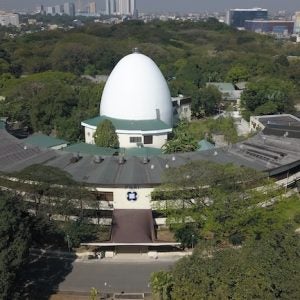Japan's Tokyo Electric Power Company (Tepco) said on 26 August that it may start to decommission at least one of the seven boiling water reactor (BWR) units at its Kashiwazaki-Kariwa NPP, the world's biggest nuclear plant by capacity, within five years of restarting two units at the site. Tepco President Tomoaki Kobayakawa outlined the possibility in a statement outlining its response to a request for plans on the station's future by the government of Kashiwazaki city in Niigata prefecture, where the plant is located.
In 2017, Tepco received initial approval from the Nuclear Regulation Authority (NRA) to restart Kashiwazaki-Kariwa units 6 and 7 at, each with a capacity of 1,356MWe. At the time, Kashiwazaki's Mayor Masahiro Sakurai demanded that Tepco should also submit plans to shut at least one of its five other reactors while local residents pressed for closure of all five. The plant’s total capacity of 8,212MWe represents 20% of Japan's nuclear capacity. Kashiwazaki-Kariwa is Tepco's only remaining NPP after it announced plans to shut its Fukushima Daini station, near the Fukushima Daichi plant destroyed in the 2011 earthquake and tsunami. Sakurai will take about a month to evaluate Tepco's plan, an official said.
"In order for Tepco to accomplish its fundamental mission as an electric utility in natural resource-deprived Japan, or in other words, to provide a stable, inexpensive, and low-CO2 emissions source of energy to the customer, we must leverage diverse energy sources to form a power mix that ensures stability, is economically feasible, and conserves the environment, while prioritising safety," Tepco said. To achieve this, Tepco believes that “in addition to further promoting the use of renewable energies it will also be necessary to leverage nuclear power into the future”. Within 10 years, Tepco seeks to develop 2-3 TW of renewable energy based on wind power, and to restart NPPs “with the intention of leveraging them to the fullest”.
Tepco said that it cannot predict when it will be able to secure non-fossil fuel power sources of sufficient scale to meet long-term demand. "Therefore, Tepco believes that at the current time Kashiwazaki-Kariwa units 1-5 are necessary for providing a stable supply of inexpensive, low-CO2 electricity." However, as a soon as it is possible to predict when it can secure sufficient non-fossil fuel power sources, "decommissioning of one or more of units 1-5" will be an option, within five years of the restart of units 6 and 7. A Tepco official said the company is aiming to have renewable and nuclear power produce 44% of total output by 2030. Tepco has been trying to convince local authorities near Kashiwazaki-Kariwa, who have sign-off rights on nuclear restarts, that it has overcome operational failings revealed at Fukushima. In April, Japan partially lifted an evacuation order in one of the two towns, Okuma, for the first time since the disaster, but many former residents are still reluctant to return. Futaba town, however, remains off-limits, as are several other towns nearby.
Kashiwazaki-Kariwa was unaffected by the 2011 earthquake, although its reactors were all previously offline for up to three years following the 2007 Niigata-Chuetsu earthquake, which caused damage to the site but did not to the reactors. While the units were shut, work was carried out to improve the plant's earthquake resistance. At present, Tepco is focusing on units 6 and 7 while it deals with the Fukushima clean-up. The two units have been offline for periodic inspections since March 2012 and August 2011, and restarting them would increase Tepco’s earnings by an estimated JPY100 billion ($943m) a year.Units 6 and 7 at Kashiwazaki-Kariwa are the first BWRs to meet Japan's revised regulatory standards. Tepco expects to complete safety upgrades at the units by December 2020. At units 1-5, the utility is examining compliance with the new regulatory requirements "based upon the content of inspections of units 6 and 7".
Following the Fukushima accident, the start of construction at unit 1 of Tepco's Higashidori plant was deferred. Tepco said it is "moving forward with geological surveys in order to further improve safety as we aim to form a basic framework of cooperation with other operators by FY2020."






